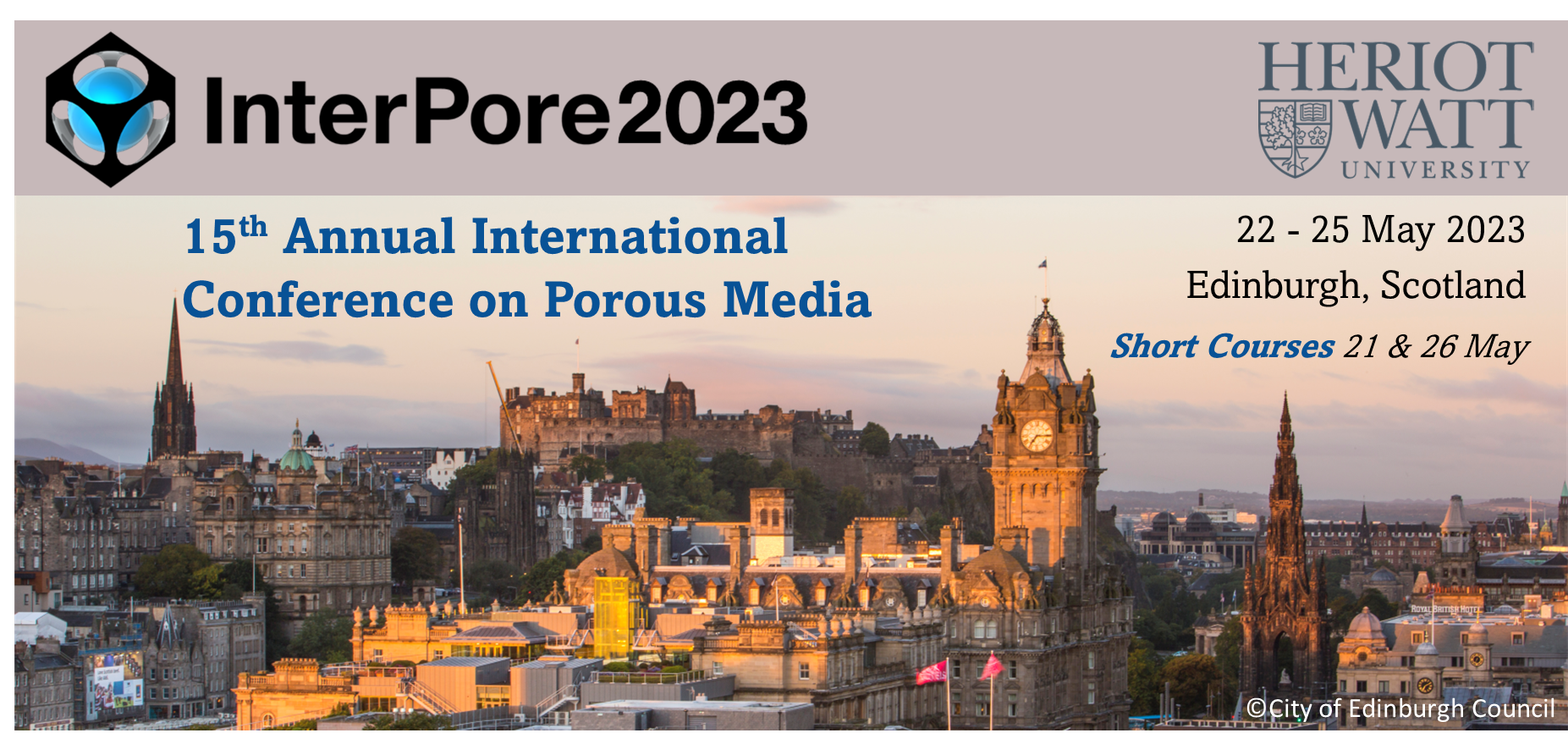Speaker
Description
Well testing is a common practice that consists of wellbore pressure and flow rates data acquisition in order to estimate parameters that govern multiphase flow in a porous media. An injection-falloff-production test was originally proposed by Shi et al (2006) as a well test for the in-situ estimation of two-phase relative permeability curves. The idea is based on the concept that if a well is returned to production subsequent to an injection-falloff test, then during the production period, the sandface will be exposed to a range of saturations. Consequently, the wellbore pressure during the flowback period is influenced by the changing saturation in the near wellbore region and hence contain information about the two-phase relative permeability curves. Although the wellbore pressure during injection and falloff seems to be insensitive to the dispersive effects of capillarity, knowledge of the correct saturation profile at the end of injection represents the initial condition for the falloff period, and is required to calculate the saturation distribution during falloff. The saturation distribution at the end of the falloff is required as the initial condition for the production period. In previous work we applied the method of matched asymptotic expansions to solve the one-dimensional saturation convection-dispersion equation, a non-linear pseudo-parabolic partial differential equation. This equation is one of the governing equations for two-phase flow in a porous media when including capillary pressure effects, for the specific initial and boundary conditions arising when injecting in an infinite radial piecewise homogeneous horizontal medium. If the total flow rate becomes equal to zero as in a falloff test, the saturation convection-dispersion equation reduces to a non-linear parabolic equation, which contains only a dispersion (diffusion) term. In this work, we find a closed form solution for the saturation distribution by applying the perturbation theory together with a Green`s function, treating the non-linearity as a source term. By combining the solution for saturation with the so-called Thompson-Reynolds steady-theory method for obtaining the pressure, one can obtain an approximate analytical solution for the wellbore pressure, which can be used as the forward solution to analyzing pressure data by pressure transient analysis.
| Participation | In-Person |
|---|---|
| Country | Netherlands |
| MDPI Energies Student Poster Award | No, do not submit my presenation for the student posters award. |
| Acceptance of the Terms & Conditions | Click here to agree |







